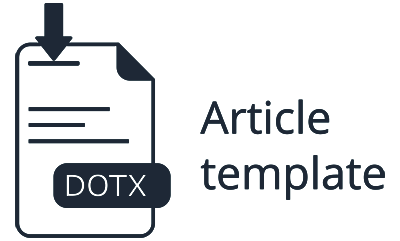Law Enforcement in Building Community Trust to Positive Legal Quality
Abstract
Law enforcement is done to restore the balance between the rights and obligations of the people, in realizing order and security for the members of the community.In a state of law, the rule of law must be manifestly realized, so that when there is a violation of law then the law must be enforced. The decline in the authority of the law is not solely due to the weakness of law enforcement, but there are many factors that cause the dissolution of public confidence in the existence of positive law in Indonesia, among others from the aspects of society itself, legal aspects, both material law and formal law and law enforcement aspects. Law enforcers must be able to portray their respective roles in upholding the law, justice and truth according to the sense of community justice. Through this enforcement, the law is actually implemented so that it can add the image and legal authority and can build public trust on the quality of positive law of Indonesia.References
Bambang Waluyo, 2016, Penegakan Hukum Di Indonesia, Sinar Grafika Jakarta.
Harsanto Nursadi, 2009, Sistem Hukum Indonesia, Universitas Terbuka Departemen Pendidikan Nasional, Jakarta.
Ilhami Bisri, 2010, Sistem Hukum Indonesia “Prinsip-Prinsip & Implementasi Hukum Di Indonesiaâ€, RajaGrafindo Persada, Jakarta.
Mangku Pastika Made, Irjen Pol, Kapolda Bali, 5 Agustus 2004, Membangun Citra Hukum Yang Legitimate Berorientasi Penegakan HAM, Disampaikan dalam Dialog Bedah Hukum Dan HAM, Yang diadakan oleh Pusat Pengkajian Negara Hukum Daerah Bali, Denpasar.
Satjipto Raharjo, 2010, Penegakan Hukum Progresif, Kompas, Jakarta.
Soerjono Soekanto, 2014, Faktor-Faktor yang Mempengaruhi Penegakan Hukum, RajaGrafindo Persada,Jakarta.
Zoeber Djajadi, Hakim Tinggi PT.Denpasar, 5 Agustus 2004, Dialog Bedah Hukum Dan HAM, Yang diadakan oleh Pusat Pengkajian Negara Hukum Daerah Bali, Denpasar.
This journal provides immediate open access to its content on the principle that making research freely available to the public supports a greater global exchange of knowledge.
All articles published Open Access will be immediately and permanently free for everyone to read and download. We are continuously working with our author communities to select the best choice of license options, currently being defined for this journal as follows: Creative Commons Attribution-ShareAlike (CC BY-SA)
The author can hold the copyright without any restriction under Creative Commons Attribution-ShareAlike (CC BY-SA)
 Abstract viewed = 234 times
Abstract viewed = 234 times
 PDF downloaded = 260 times
PDF downloaded = 260 times



